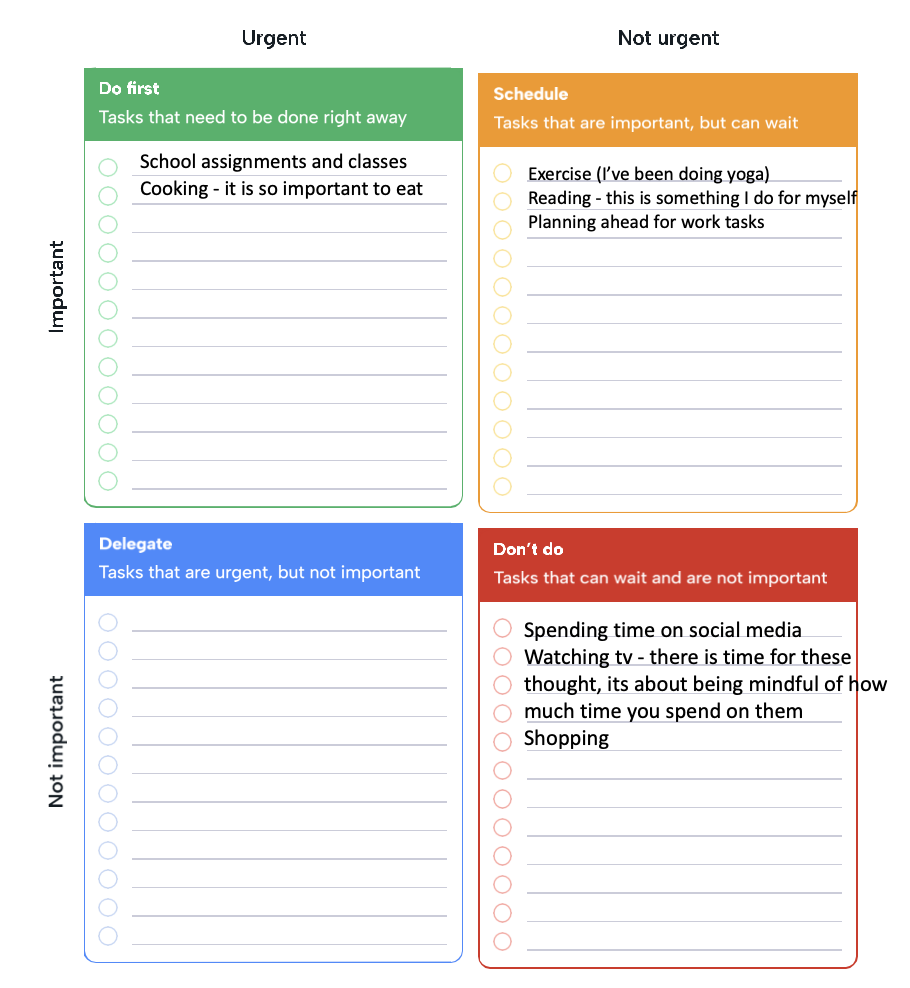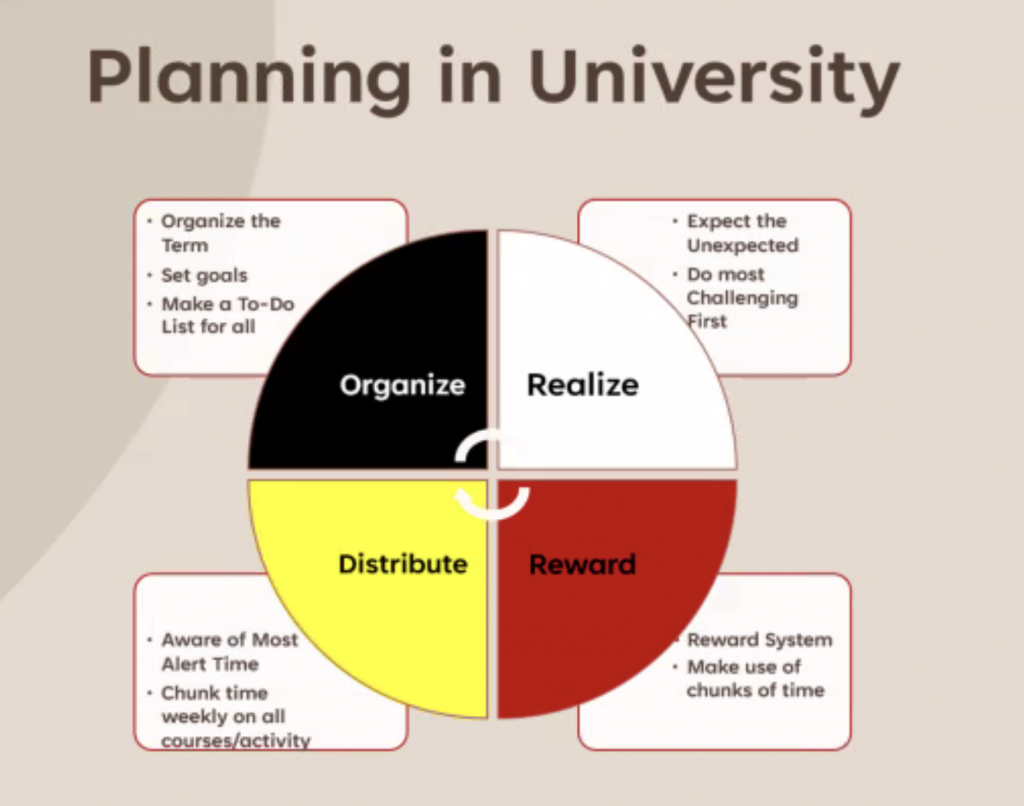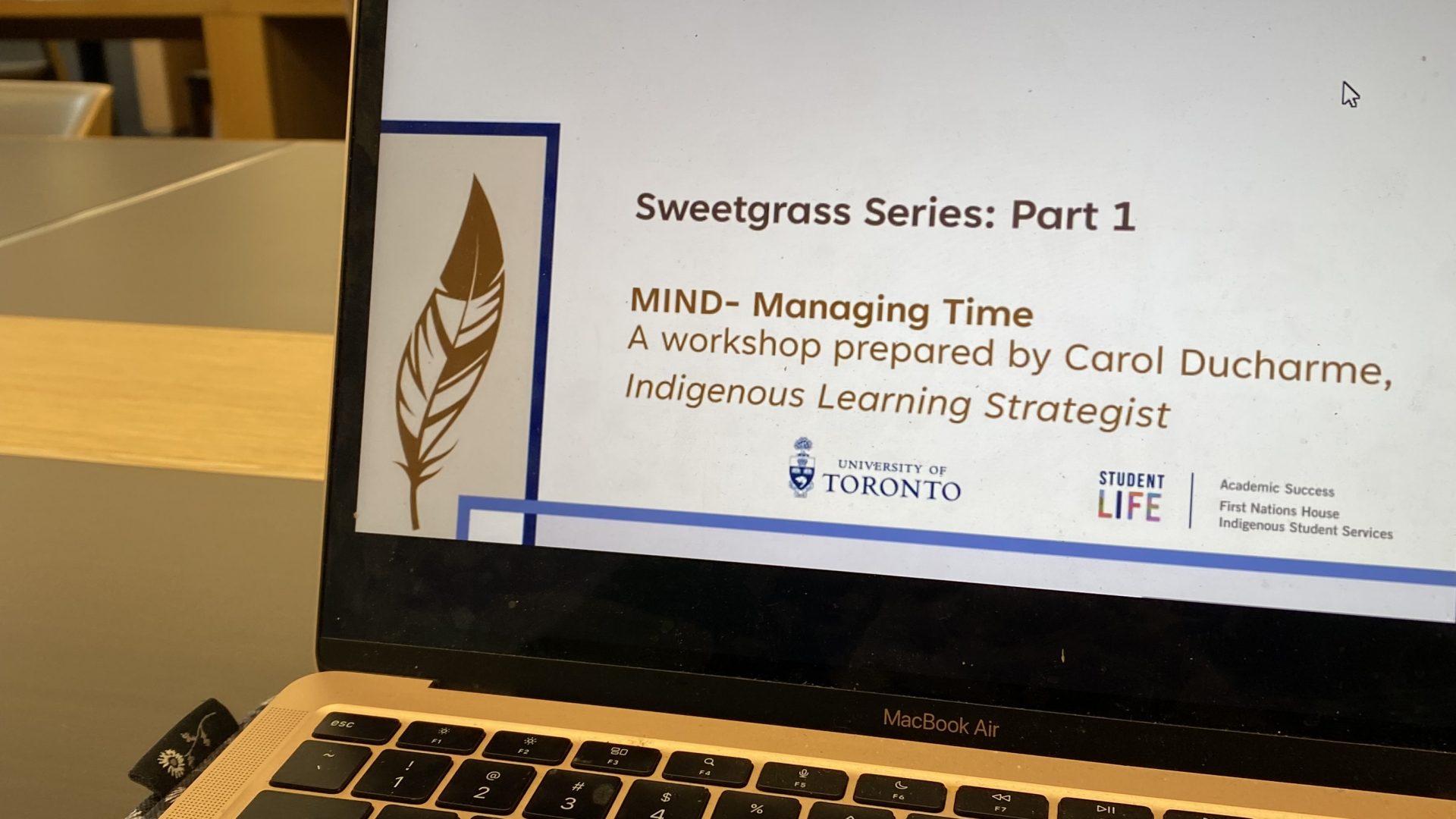On Tuesday I attended the first workshop in the "Sweetgrass Series". These workshops use Indigenous Knowledge as a framework for Academic Success.
The first workshop focused on time management, however there are two more emphasizing other topics if anything mentioned in this post interests you.
The workshop was facilitated by Carol Ducharme, an Indigenous Learning Strategist at First Nations House.
This workshop totally shifted my perspectives on time, productivity, and personal value. The colonial concept of time emphasizes outcomes and productivity, and this can lead to a lot of guilt when spending time on activities that don't lead to a "productive" outcome. In the workshop, they suggested that we can use colonial tools of time management, like calendars and schedules, to create time for personal wellbeing, and that this can actually be an act of resistance against colonial productivity culture.

After this framing, the workshop outlined some ways of effectively using these tools for time management. One tool that was introduced was a "priority matrix", which can assist in figuring out what tasks are the most urgent. We also looked at how the medicine wheel can be applied to the priority matrix as another means of understanding.

This workshop was so wonderful and informative. I highly suggest attending one of the other workshops in the series if you get the chance. If you want to look at how you can decolonize your student experience and gain a greater understanding on how Indigenous knowledge can be applied to all aspects of life, this is absolutely for you!
- Annie

0 comments on “Indigenous Frameworks for Time Management: What I Learned from the “Sweetgrass Series””